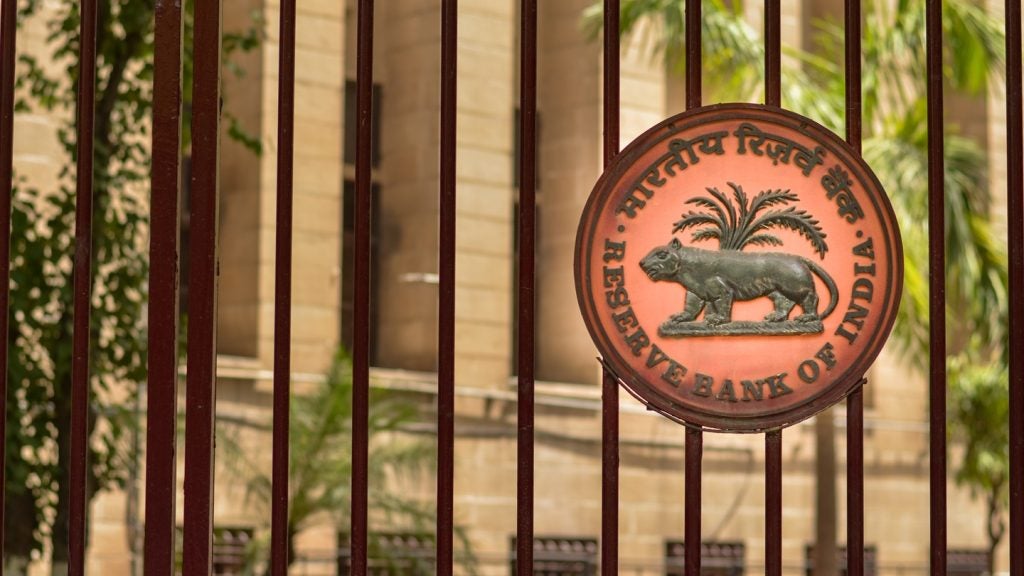In little over one month the Argentinian peso lost more than a quarter of its value. As a result the government has placed currency controls on businesses in an effort to avoid capital flight. But how is the economic crisis impacting on the credit card sector? Ivan Castano reports
Argentina’s financial crisis has hit credit card issuers with default rates tripling as consumers tighten their belts to survive a major economic downturn.
“We are at a turning point. Delinquency payments are rising in gigantic steps,” says Nora D’Alessio, owner of industry consultancy D’Alessio in Buenos Aires.

Access deeper industry intelligence
Experience unmatched clarity with a single platform that combines unique data, AI, and human expertise.
D’Alessio adds that most Argentines are struggling to pay their minimum card balances, slipping into a vicious debt cycle. Almost 76% or almost 8 of 10 Argentinian households have debt to pay because of credit cards, up from 68% a year ago, says D’Alessio.
Meanwhile, delinquencies stand at 7.5%, up from 6.6% in late 2018, says Victor Bescos, president of Argentina’s Bank Marketing Association (AMBA). He adds that the situation is set to worsen if Argentina fails to restructure its ballooning debt. Some observers, however, noted Bescos’ statistics seem overly optimistic and that the default rate is likely hovering at 12%.
Spanish and international banks Santander, Banco Galicia, ICBC and Banco Macro are the biggest issuers in the cards sector. The industry moved roughly $50bn before Argentina’s peso and stock markets collapsed in mid-August when front-runner presidential candidate Alberto Fernandez trumped President Mauricio Macro in an upset primary vote.
Shock waves
The results sent shock waves across global financial markets. Investors worry that Fernandez, who has former leader and political powerhouse Cristina Fernandez de Kirchner as his running mate, will resurrect unpopular interventionist policies and ask investors to take a new haircut on international bonds.
Argentina has already asked the International Monetary Fund and bondholders to accept late payments on over $100bn of debt. It says it intends to restructure its debts quickly and without any discounts.
Meanwhile, South America’s second-largest economy is set to shrink 2.5% this year, up from a 1.5% earlier forecast as the crisis escalates amid fresh caps on dollar purchases, rising inflation and unemployment .Argentina’s banks are largely to blame for the difficulties consumers are facing, says D’Alessio, adding that they over-leveraged themselves during expansion times.
“Two years ago, we told them to be careful to not overlend with credit cards but it was a good business, so they didn’t listen to us,” D’Alessio sighs. “Now people don’t know what’s going to happen. 90% worry about inflation and 82% about economic uncertainty.”

US Tariffs are shifting - will you react or anticipate?
Don’t let policy changes catch you off guard. Stay proactive with real-time data and expert analysis.
By GlobalDataBanking cushion
Despite rising defaults, banks are in good shape to survive the downturn, observers say. This is mainly because the country’s top lenders amassed large cash reserves during the last decade when Argentina’s economy grew at relatively healthy rates. “While banks are facing growing defaults, they have had many years of strong earnings and they are very liquid,” buffering them against potential losses and giving them room to manoeuvre to extend credit terms or cut fees,” says Manuel Beaudroit, chief marketing officer at blockchain payments start-up Bitex, which helps businesses use Bitcoin and other digital currencies to make payments. Indeed, banks’ overall loan-to-asset ratio and impaired loan portfolio remains very low, ranging at 69% and 65% for Banco Macro and BBVA Argentina respectively, according to analysts.
Banking health aside, Buenos Aires should quickly devise a strategy to help consumers slash their debts just as Argentina’s debt-to-equity ratio ticks over 100%, adds Beaudroit.
“More and more people are stuck in making minimum payments so the debt balance continues to grow,” he says. “The government has to decide whether the banks can and should bail out consumers amid different options to tackle the issue.”
Meanwhile, lenders are rushing to make life easier for consumers. For example, they are rolling out new campaigns that enable them extend payments to 18 months instead of the typical 12, says Beaudroit. However, he notes issuers have so far refused to cut interest rates, which are prohibitively high in Argentina, ranging from 70% to 80% annually.
Can crypto help?
To shore up the peso, which plummeted 30% alongside a major stock market crash (the second-worst in history), the government instituted capital controls capping dollar withdrawals to $10,000 for individuals and $2m for firms including importers
The thresholds, designed to avoid a repeat of the infamous “corralito,” an event that saw Argentines boycott banks to withdraw their savings in 2001, represent an opportunity for Bitcoin and cryptocurrencies.
“If you are an SME, you can use Bitcoin to make an import payment with no limits and with an average transfer fee of $0.50,” Beaudroit explains. Conversely, “If you are using your black [premium] business card, you have a $4,000 monthly limit and 5% fees,” he adds.
Whether Argentines will resort to Bitcoin or other digital currencies to skip capital controls (similar to what Venezuelans have done) remains to be seen. One thing seems certain, however: online payments are taking off in the country, driven by a slew of startups seeking to court its hugely unbanked population.
Online retailer Mercado Libre’s digital wallet Mercado Pago has taken the market by storm. This follows a growing number of well funded rivals including Uala, Nubank, Wilow bank and Nubrank, says Ignacio Carballo, who teaches financial inclusion and digital banking at Buenos Aires’ FCE-UBA University.
He claims the fintech sector is defying the crisis, growing 65% so far this year after chalking up gains of 110% in 2018, sharply outpacing traditional banking.
Fintech boom
“The fintech sector continues to grow in Argentina with new groups and international funds growing counter-cyclically to the macroeconomic outlook,” he says.
Uala is the latest enterprise attracting foreign cash for expansion with China’s Tencent, owner of messenger-to-payment app WeChat, recently making a big yet unspecified investment and joining billionaire George Soros and New York hedge fund Point72 to fund the young firm.
Operating a mobile app linked to a Mastercard prepaid card, Uala has printed 1.1 million prepaid cards. However, it remains far from market leader Mercado Pago, which has won the hearts of three million card holders by providing them with discounts on its e-commerce site and the ability to conveniently pay for services such as Cabify, Netflix and Spotify.
While the emerging fintechs don’t offer lower transaction fees than banks, their technology is more efficient and easier to use, says Carballo.
“They provide better services for the unbanked, a huge consumer pond where banks don’t want to fish,” he adds. That’s important.
One in two Argentines operates in the cash economy, making these firms, which are more lightly regulated than traditional lenders, increasingly popular. As Argentina’s debt crisis continues – with a repeat of the 2001 debt malaise that shut its access to international financing still looming – it is easy to see how its dominant lower-and-middle class citizens will continue to seek online and other unconventional payment methods.







